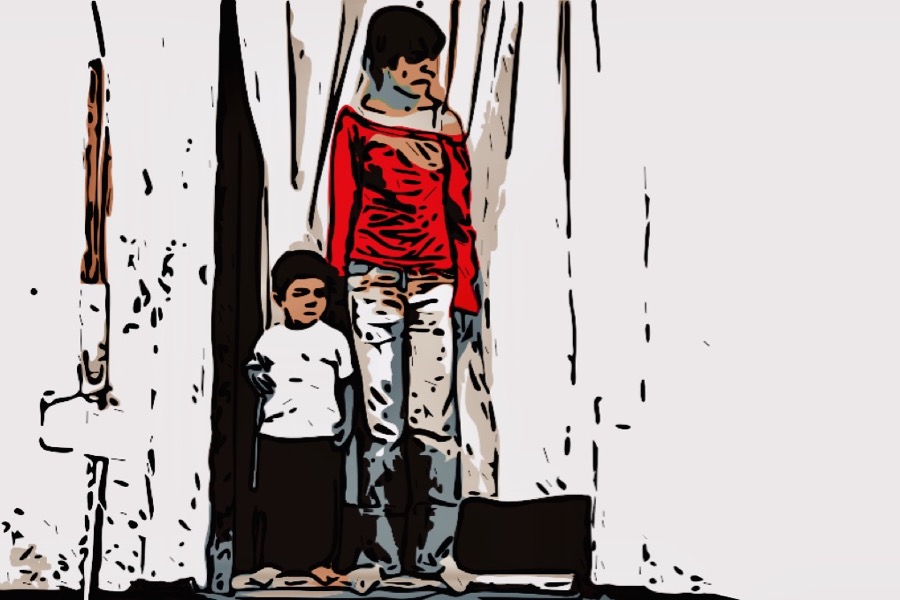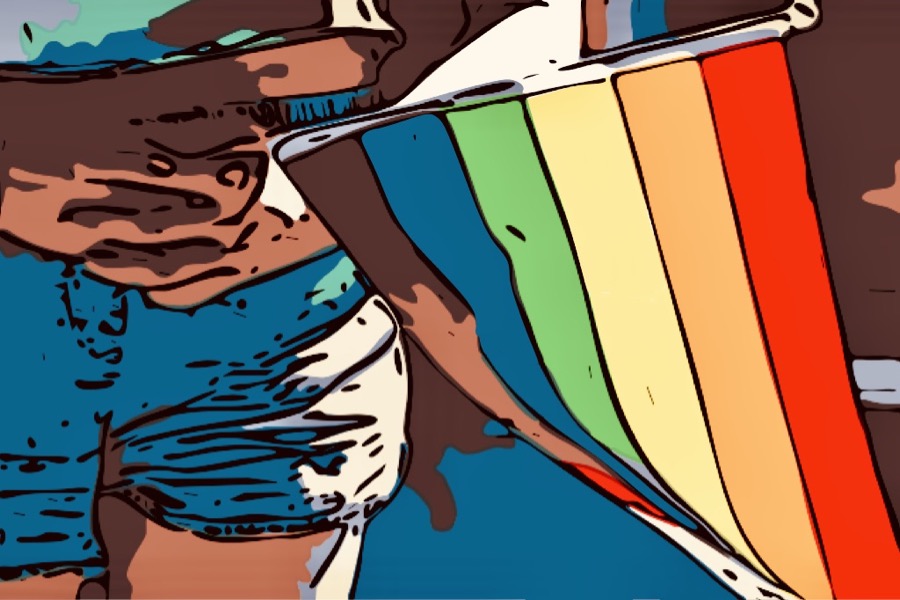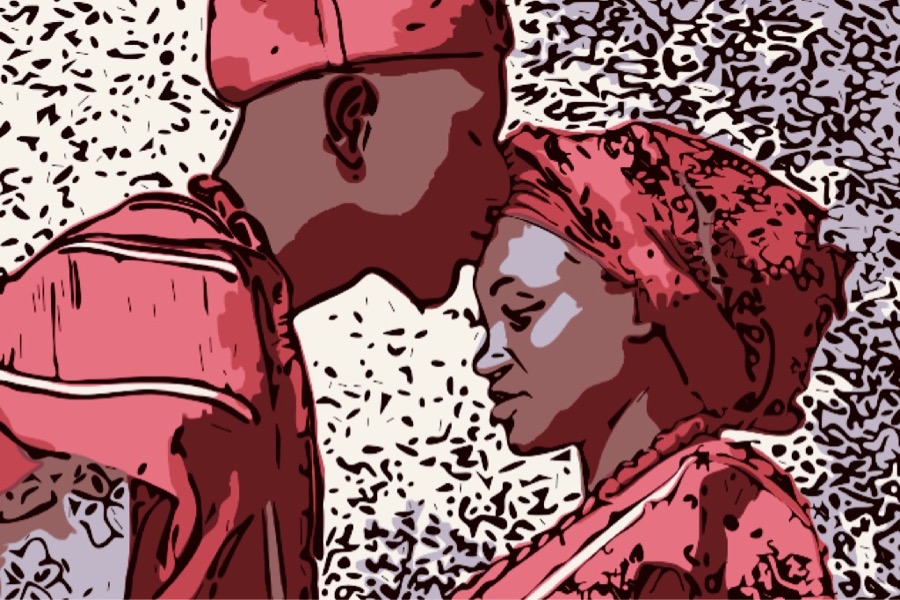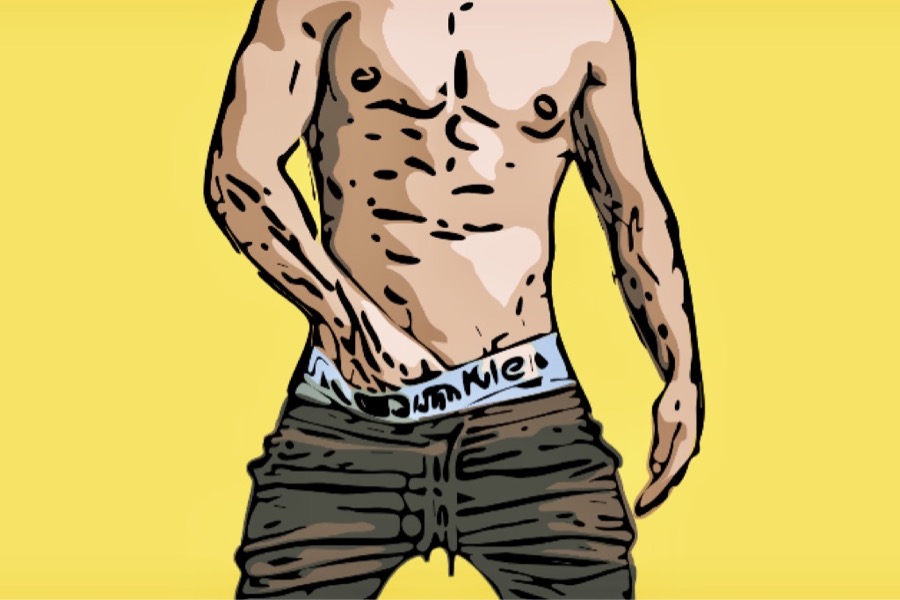Sveta is 29 years old and lives in Chieri, Italy. Occasionally, she works as an online Russian teacher, volunteers at some Roma camps in Turin, and has started a fundraiser attempting to be as active as possible in this area, especially for LGBTQIA Romani (lesbian, gay, bisexual, trans, queer, intersex, and asexual). She likes to dance and travel: before COVID with his wife Chiara they traveled a lot. Sadly, now it is not possible to do so.
Chiara is 24 years old, she is a sunny and outgoing woman. From time to time, she works at a butcher’s shop and the remaining time she helps her mother in Turin who is no longer self-sufficient. She loves cooking: it is her passion and often tries to recreate different dishes. Sveta and Chiara met in a gay club in Turin, they have been together for three years and have been married for two. Their stowaway dream is to have a family.
When did you both find out you were attracted to women?
Sveta: Later in life, around 19. Or at least this is what I wanted to believe: I’ve always tried to repress my orientation, I thought it was wrong and I questioned myself a lot until I finally accepted it.
Chiara: I’ve been aware of it since I was 8 years old when I fell in love with another girl.
Have you come out to your families?
Sveta: Yes, I was very anxious to tell my parents: I remember that at first, out of fear, I told them I was bisexual! They reacted quite well, I can’t say they were happy, but we haven’t talked about it anymore. Then I made up my mind and told them I was a lesbian. Their reaction was cold, they told me: “We couldn’t imagine, you never show any signs.” We didn’t speak of it anymore. Then after I had a few experiences, they accepted it and now are aware of much more. Perhaps they used to have some stereotype in mind. Now I am married to Chiara and they consider her as a daughter. On the other hand, our relatives are divided: some accept me and understand without having to blatantly come out to them, with some others I simply no longer have a relationship.
 Chiara: Coming out to my mom did not go well. She told me that I would be alone and would not have children, the classic phrases of a conservative and deeply religious person. With my dad, on the other hand, it went better: he already suspected it since I was only talking about girls, and he supported me. Like Sveta, I too had a fall out with my maternal relatives, but my paternal relatives support me and love me unconditionally.
Chiara: Coming out to my mom did not go well. She told me that I would be alone and would not have children, the classic phrases of a conservative and deeply religious person. With my dad, on the other hand, it went better: he already suspected it since I was only talking about girls, and he supported me. Like Sveta, I too had a fall out with my maternal relatives, but my paternal relatives support me and love me unconditionally.
Have you ever been subjected to discrimination?
Chiara: Yes, I’ve suffered discrimination, beatings, and verbal violence for being a lesbian, especially when I didn’t have a partner but even now that I do. I kept everything inside, I didn’t talk about it to anyone not at school, not at home. Over time I’ve learned to let things slip through me. After all “what does not kill, makes you stronger!”
Sveta: Yes, I too have suffered discrimination, especially verbally, and lost many important friends because of it. Even though, to be honest, I suffer more discrimination as a Romani than being a lesbian.
What do you think of the LGBTQIA community in Italy?
Chiara: I think that sometimes the LGBTQIA world can be a sea of sharks, especially for bisexual people, towards whom I see contempt. I am convinced there is still a long way to go to break down certain prejudices, especially against the Roma community. What I appreciate, however, is the fact that you can lend a hand to so many people.
Sveta: I agree! The LGBTQIA world has helped and still helps a lot of people in difficulties. I’ve met many people with whom I’ve excellent friendships. What I don’t like is the fact that they discriminate against Roma people and use a lot of labels. I don’t think there are different worlds, just different people in one universe. I participate in the Pride Parade and sometimes go to clubs, I keep informed about what is happening around us, about the laws, homolesbobitransphobia, etc.
 What would you suggest to young LGBTQIA Romani?
What would you suggest to young LGBTQIA Romani?
Sveta: I’d advise Roma girls to come out: start with trusted people, and to leverage the LGBTQIA associations. If the family is very conservative and you feel in danger, it is better to think about finding a secondary solution.
Are there many LGBTQIA people in the Romani community?
Sveta: Not many, but often they pretend to be heterosexual and hide. Of course, it all depends on the family, but most Roma people are against it. In my community, we have many out-of-the-closet LGBTQIA people who do not have problems: for them it is normal.
How does it feel to be a minority within a minority?
Sveta: For me, it is very difficult, because most of the Roma people do not accept me and I have to lie. While by the gadje [term for all non-Roma] I am not understood, because it is strange to see a Romani lesbian so they discriminate me for both things but mostly as Romnì. Often, when I volunteer in Roma camps, I have to lie and say that Chiara is just a friend, and I don’t tell the gadje that I am Romni: it happened I wasn’t let into clubs or bars, I was insulted or spit on, especially if I was wearing the traditional skirt. Is a skirt really enough to change people’s opinion of you?
Chiara: When she told me she was Romani, I exclaimed: “How cool!” I feel great to be with a Romni, but it’s painful to see people’s disgusted looks when they see us holding hands, especially if Sveta is wearing traditional clothing. In the Roma community -and in the whole world- it should not be assumed everyone is open-minded. In Sveta’s community, I feel good, I feel they are like a second family. Instead, outside of it, sometimes I have to lie, especially to protect Sveta, and pretend to just be friends. Usually, when we realize the kind of people we have to deal with, we simply try to avoid them.
Ervin Bajrami
translation by Barbara Burgio
©2021 Il Grande Colibrì
images: Il Grande Colibrì / elaborations from Sisma Dimitric (CC BY 2.0) / from Allie Smith (CC0)




